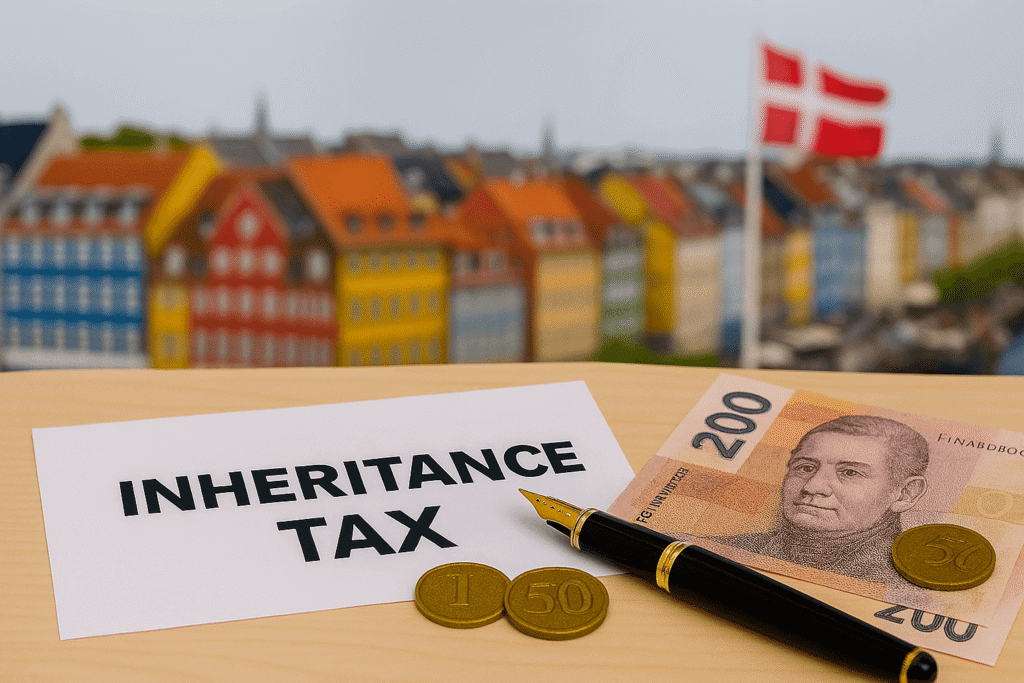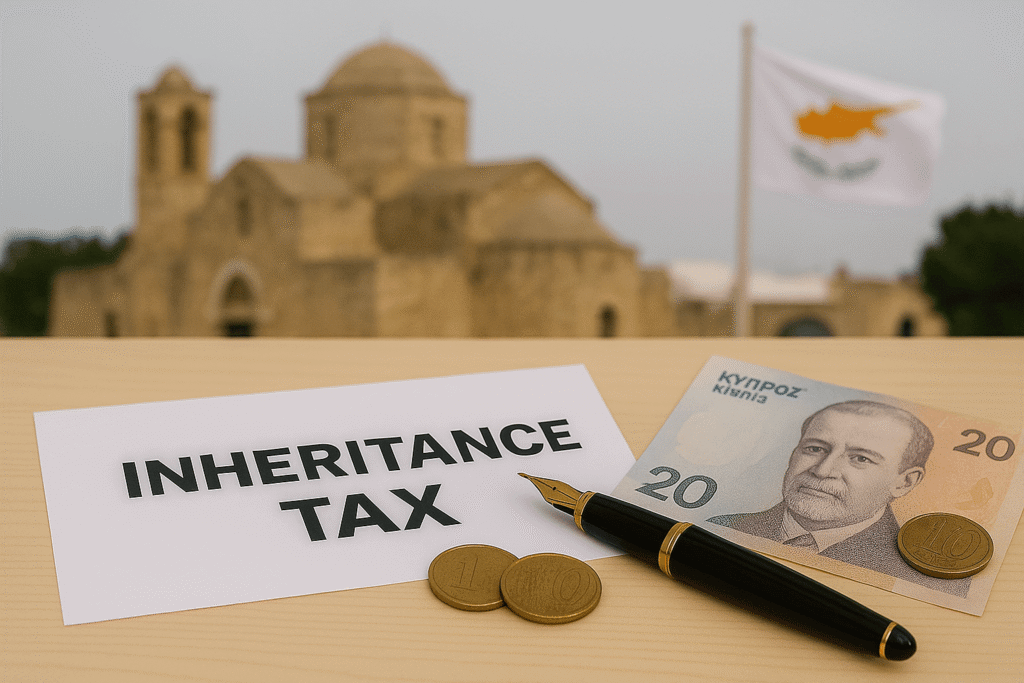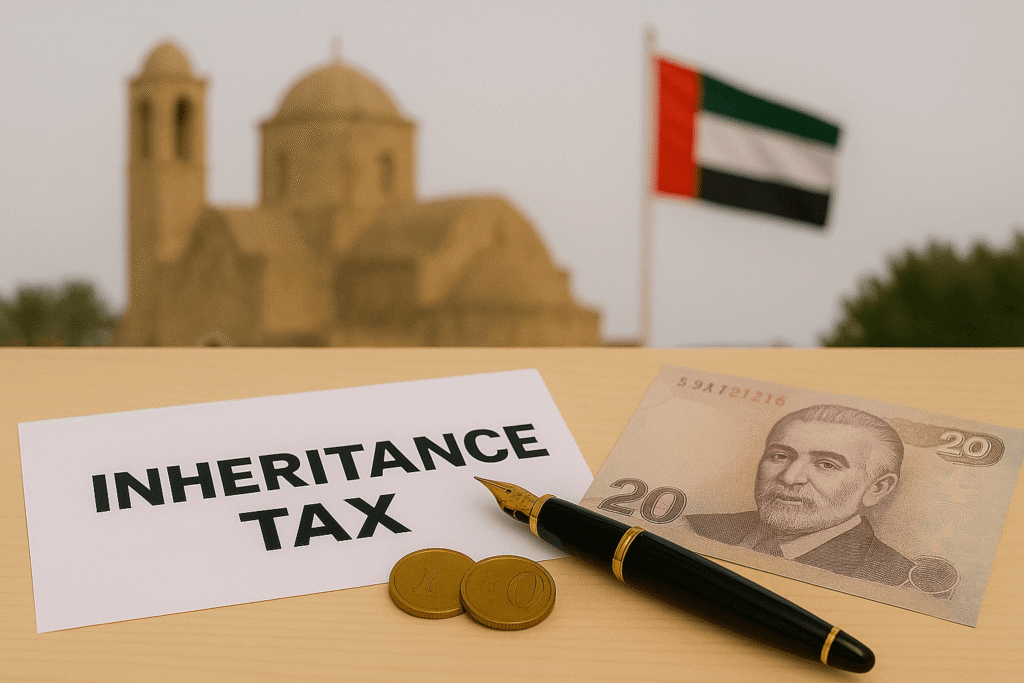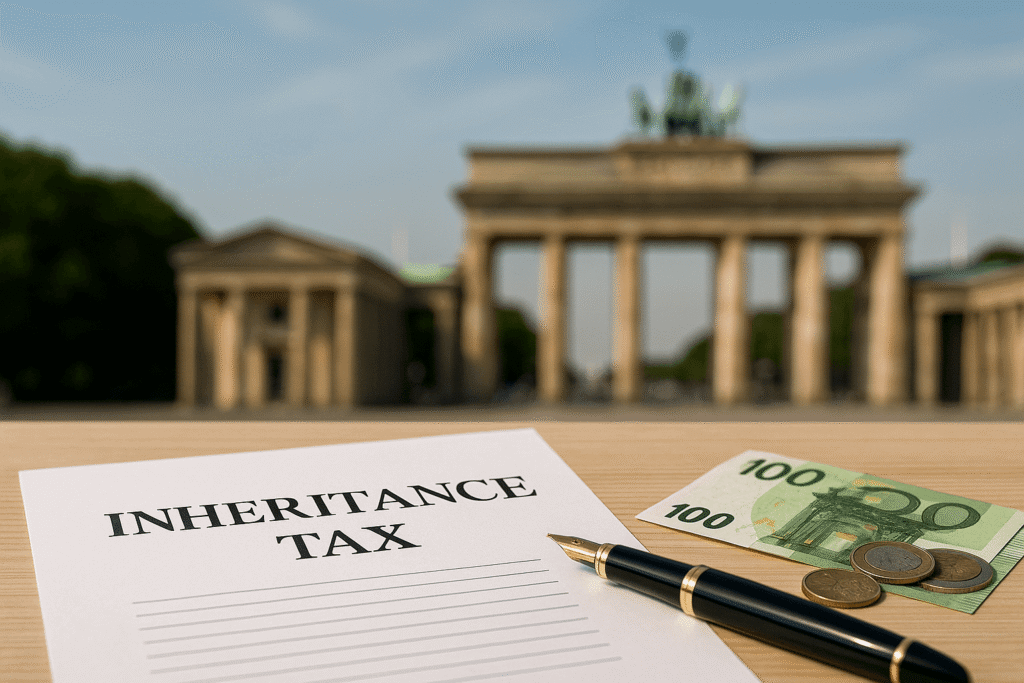If you own assets in Denmark or expect to inherit assets in cities like Copenhagen or Aarhus, it’s essential to understand the legal and tax implications of the inheritance process. Denmark imposes a flat inheritance tax rate on almost all heirs of the deceased.
In Denmark, there are rules governing the taxation of inheritances and gifts, which can reach up to 36.25% of the estate value. Understanding Danish inheritance laws early is crucial. Proper planning of wills, residency status, and lifetime gifts can reduce tax exposure when transferring assets to the next generation.
Beyond that, inheritance tax planning can prevent legal disputes, delays in the inheritance process, and unexpected demands from various authorities.
Inheritance Tax vs. Estate Tax in Denmark
- Estate Tax – Imposed on the deceased’s assets before they are transferred to the heirs.
- Inheritance Tax – Applies to all assets received by the heir.
Inheritance Tax in Denmark – What You Need to Know?
Denmark has a flat-rate inheritance tax that applies based on the relationship between the heir and the deceased. Depending on the relationship, the heir will be subject to paying a certain tax amount, unless they’re the deceased spouse, in which case they’re exempt.
Inheritance tax applies if the deceased was a Danish resident or if the inherited assets are in Denmark. Similarly, a Danish resident who inherits foreign assets must report them and is subject to tax, depending on the countries’ tax treaties. If the heir is a Danish resident inheriting foreign assets, they may be obligated to pay inheritance tax, unless they are granted relief under a double taxation treaty.
There have been several legislative changes, the most recent one was on April 8, 2025, allowing three tax breaks for intergenerational asset transfers in family real estate companies. In addition, changes are expected in early 2027 that will change the inheritance tax for siblings to 15%, equal to that of children and parents.
Inheritance Tax Rates in Denmark
Spouses: 0% (fully exempt)
Children, stepchildren, parents, and cohabitant: 15%
Non-relatives and distant relatives (friends, siblings, and grandparents): 36.25%
Exemptions and Relief
As of 2025, the first 346,000 DKK of the estate is tax-free, after which the heir is subject to a fixed tax rate.
Gift Tax in Denmark
In Denmark, if gifts exceed a certain threshold, they are taxed the same as inheritance tax. For close relatives, if the gift is under 76,900 DKK, the descendants are offered a tax exemption. For non-immediate family members, tax exemptions apply to gifts valued at less than 26,900 DKK.
Inheritance Taxation in Israel Compared to Denmark
In Israel, unlike Denmark, there is no estate tax or inheritance tax. However, in some instances, tax may be imposed on the full value of the inheritance received, such as capital gains tax when the asset is sold.
The tax treaty between Israel and Denmark includes provisions that can prevent double taxation. Still, it’s important to plan the reporting and filing accurately to avoid double payment.
To read the Israel-Denmark tax treaty in English, click here.
Making a Will in Denmark– The Key to Tax Savings and Dispute Prevention
Inheritance doesn’t always transfer smoothly to the heirs. Sometimes complex procedural steps are needed to obtain a probate order or permission to realize the assets.
Creating an organized will is not just a matter of personal preference; it is an integral part of estate planning and taxation. A specific will ensure that assets are transferred smoothly and efficiently to the heirs. The will should include the deceased’s wishes but must also be adapted to comply with the requirements of the law, ensuring its validity is not compromised.
In Denmark, there are forced heirship rules that entitle certain family members to a share of an individual’s estate, even if stated otherwise in a will. If the deceased doesn’t have a valid will, then Danish law will determine the distribution among the legal heirs, prioritizing spouse and children.
If you own assets in Denmark, we recommend creating a will to ensure that the transfer of assets process is as smooth as possible. A will can prevent misunderstandings or lengthy legal processes and ensure that the process proceeds in an orderly manner even after the death of the deceased.
Received an Inheritance in Denmark? 7 Steps for Proper Realization of Inheritance from Denmark
1. Clarification of Factual and Legal Background
First, check the type of asset that is to be inherited, its location, the identity and status of the heirs, the value of the asset, and more.
2. Checking the Timing and Location of Inheritance Realization
Consider whether it’s advisable to realize the asset now, and if so, where would be the better place to realize it – in Denmark or Israel?
3. Regulatory and Banking Aspects
Check the costs of money transfers, determine if an account needs to be opened in Denmark or another country to transfer funds, and identify any required approvals.
4. Planning the Asset Transfer
Consider whether to transfer the asset itself or its proceeds, and what the tax implications are, including exemptions and deductions.
5. Avoiding Double Taxation
In light of the existence of a double taxation prevention treaty, it is recommended to check whether there is a mechanism for crediting tax paid in Denmark against tax liability in Israel. Ensure that reporting is done correctly and accurately to avoid duplicate payments.
6. Checking the Future Effects on the Asset
It is recommended to examine the future effects on the asset, for example, a future sale of the asset will often be subject to capital gains tax in Israel as well.
7. Transferring the Asset to Israel
Performing all necessary actions, submitting documents, handling matters with banks in Denmark and Israel, and executing the asset transfer.
How Can We Help?
The goal is to transfer the inheritance to heirs in Israel in the most tax-efficient manner, while addressing legal issues in both Israel and Denmark, as well as banking and regulatory concerns. For example, whether it’s better to realize a specific asset in Denmark or transfer it to Israel, how to transfer inheritance funds to a bank account in Israel, how to utilize various exemptions among heirs, whether to make gifts during one’s lifetime, whether to establish a trust, and more. Strategic planning, as mandated by law and tax treaties, is crucial for minimizing tax liabilities.
Nimrod Yaron & Co. has extensive experience in personally and professionally accompanying Israelis with assets or inheritances in many countries around the world, including Denmark, from the initial planning stage through dealing with authorities in Denmark and Israel, to transferring inheritance funds to the heir’s bank account.
We collaborate with all relevant professional entities in Denmark and Israel, offering tailored legal solutions in both taxation and banking, adapted to the specific circumstances of each case.
If you have inherited assets or wish to bequeath assets in Denmark, our team of lawyers specializing in international taxation and inheritance law will be happy to advise you. Contact us for an initial consultation.
Do I need to pay tax in Israel on an asset inherited from Denmark?
No. There is no inheritance tax in Israel. However, capital gains tax may apply after the sale of the property. It is essential to check the recommended date for selling the inherited property.
Why is it important to plan the transfer of assets between generations in advance?
The transfer of assets between generations from abroad is not just a family matter but also a tax and economic issue. Early planning, considering legal issues in Israel and abroad, can save a lot of money and prevent legal complications.
How can the inheritance be realized optimally and save tax?
To optimize inheritance and minimize unnecessary tax payments, it is essential to examine all tax options, including utilizing exemptions, planning gifts, establishing companies, and trust funds, among others.
How can the inheritance tax liability in Copenhagen be reduced?
Through early tax planning, which includes drafting a will, utilizing exemptions, giving gifts during your lifetime, and more, you can significantly reduce your tax liability.
Is it better to give an asset as a gift during lifetime or to bequeath it?
The choice between giving a gift and bequeathing depends on the circumstances of the case. Sometimes a gift will be taxed similarly to an inheritance. Therefore, the legal and tax aspects should be examined before planning.
What are the implications in case there is no will?
In the absence of a will, the inheritance will be divided among the legal heirs according to the laws of inheritance in Denmark.
What documents are required for the process of realizing an inheritance in Denmark?
To inherit property in Denmark, documents such as a death certificate, a will (if one exists), copies of the heirs’ ID cards, property ownership documents, bank account confirmations, and other relevant documents are required.
How long does the process of realizing an inheritance in Denmark take?
The process of realizing an inheritance in Denmark can take between several months and a year or more, depending on the complexity of the testator’s estate, the number of heirs, the existence of a will, and other factors.









